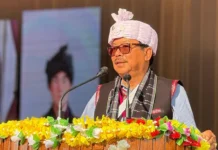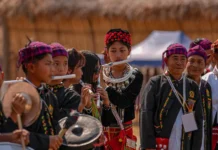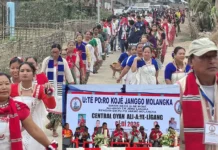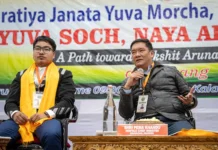ITANAGAR, 16 Jan: A total of 13,428 units of blood were collected and 11,622 units of whole blood/packed red blood cells transfused across Arunachal Pradesh during 2023, the State Blood Transfusion Council (SBTC) informed in a release.
During the year, a total of 6,913 patients were transfused with blood and blood products.
It further informed that a total of 3,965 units of platelet and 3,461 units of fresh frozen plasma (FFP) were transfused as against 5,802 units of platelet and 5,789 units of FFP prepared during the year.
The STBC’s yearly data (January to December) showed that 951 units of blood were collected in January, 876 in February, 1,179 in March, 1,236 in April, 1,097 in May, 1,388 in June, 1,158 in July, 1,398 in August, 999 in September, 1,400 in October, 893 in November, and 853 in December.
The month-wise blood transfusions were: January – 873, February – 749, March – 956, April – 1,038, May – 965, June – 1,262, July – 976, August – 1134, September – 867, October – 1031, November – 905, and December – 866. The highest of 1,400 units was collected in October.
“The data is also a reflection of the contribution made by the people in saving lives in the state through voluntary blood donations,” SBTC Deputy Director Dr Joram Khopey said.
At present, blood transfusion services are provided at RK Mission Hospital (Itanagar), TRIHMS (Naharlagun), Gyati Takka General Hospital (Ziro), Tadak Dulom District Hospital (Daporijo), the general hospital in Aalo, the district hospital in Yingkiong, Bakin Pertin General Hospital (Pasighat), the district hospital in Roing, the zonal general hospital in Tezu, the district hospital in Seppa, the district hospital in Bomdila, KDS District Hospital (Tawang), the district hospital in Longding, the district hospital in Changlang, the district hospital in Namsai, Tasi Panging CHC (Ruksin), the district hospital in Basar, and CHC Yazali.
Blood and blood products are issued to all categories of patients free of cost from the government-run blood centres and blood storage units, Dr Khopey said.
Stating that one unit of blood can save three people at a time, he appealed to every eligible person to donate blood voluntarily.




